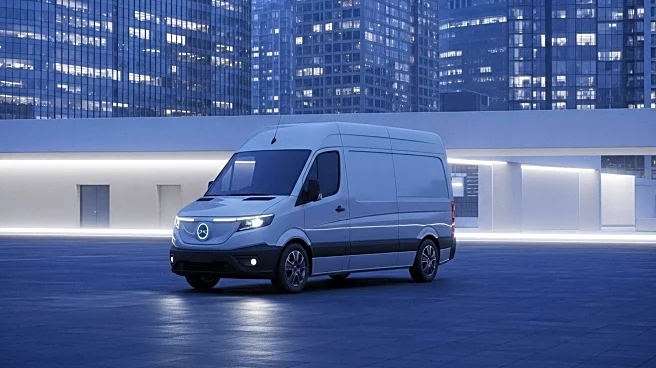What's Happening?
Rivian Automotive has adjusted its annual delivery forecast, lowering the midpoint due to the expiration of federal tax credits that have supported electric vehicle (EV) sales. The company now expects to deliver between 41,500 and 43,500 vehicles, slightly down from its previous forecast. Despite a 32% increase in deliveries, Rivian faces challenges as the U.S. Congress has ended a $7,500 tax credit on EV leasing. This change, along with high tariffs on auto parts, has increased manufacturing costs, impacting the EV industry's margins and sales outlook.
Why It's Important?
The expiration of the federal tax credit is a significant blow to the EV industry, which has relied on such incentives to drive sales. Rivian's revised forecast reflects broader industry concerns about maintaining growth without these credits. The increased costs due to tariffs further strain manufacturers, potentially slowing the transition to electric vehicles. This development could affect consumer adoption rates and the industry's ability to compete with traditional automakers, highlighting the need for strategic adjustments in supply chains and pricing models.
What's Next?
Rivian is set to release its third-quarter financial results on November 4, which will provide further insights into its performance and strategic adjustments. The company is also preparing for the launch of its more affordable R2 SUVs next year, which could help mitigate some of the financial pressures by appealing to a broader market segment.











